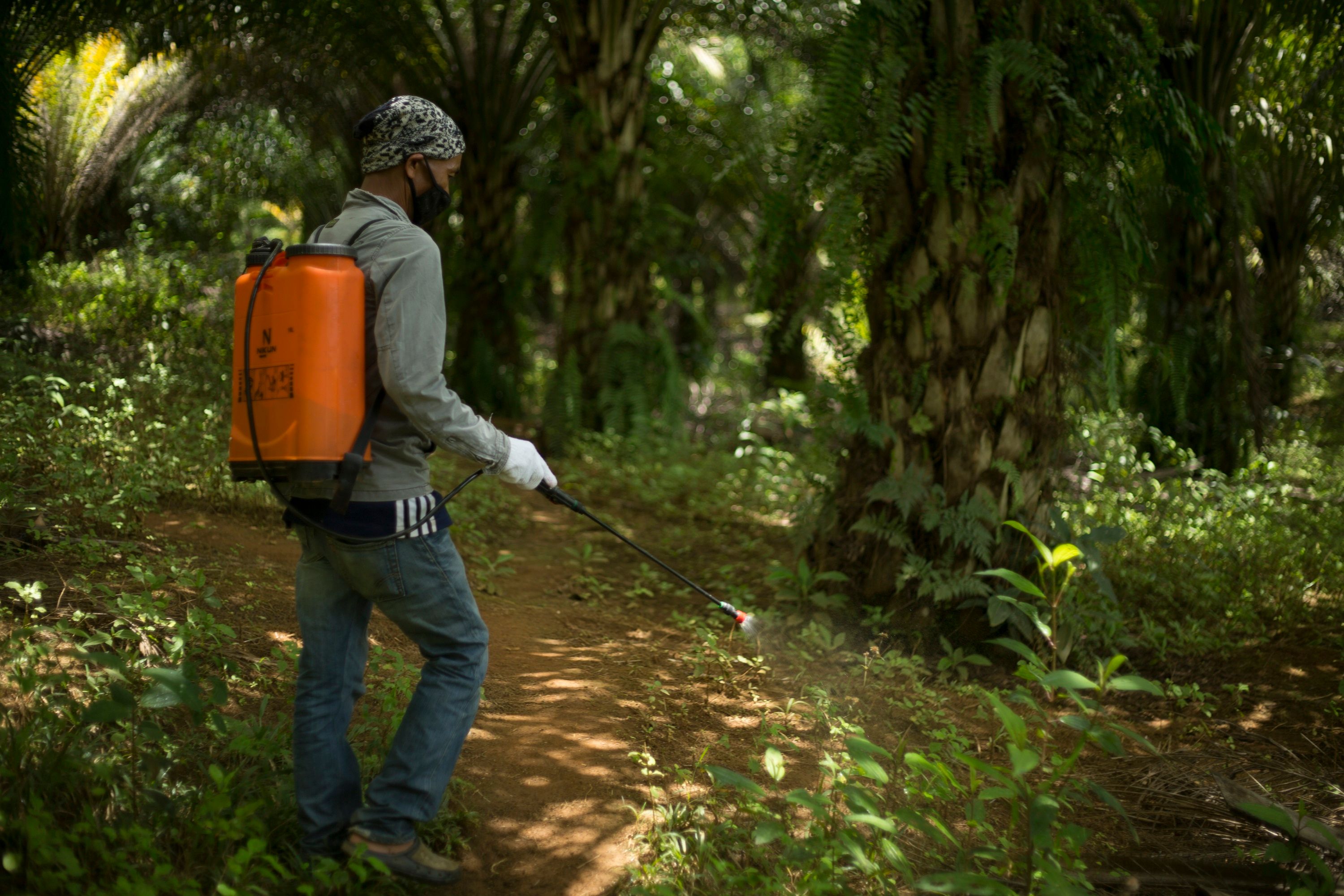Paraquat
 ©
Rojo Mabilin
©
Rojo Mabilin
Syngenta continues to sell the herbicide paraquat in over one hundred countries, usually under the brand name of "Gramoxone". Its applications include use on banana, coffee, palm oil, cotton, rubber, fruit and pineapple plantations. Agricultural enterprises of all sizes use it on maize, corn and rice fields.
Workers and farmers who regularly come into contact with the herbicide paraquat have to combat severe health problems. The high toxicity of paraquat (for which no antidote is available) causes repeated deaths. Studies have also proven the following types of long-term damage due to chronic exposure to paraquat: impaired lung function, dermatoses (skin disorders) and neurodegenerative diseases.
How paraquat affects humans
- Damage to the eyes: keratitis, conjunctivitis, destruction of the ocular surface.
- Damage to the skin: ranging from reddening and blistering to severe burns. Dermatitis. In the worst cases, the absorption of paraquat into the body through damaged skin can lead to death.
- Damage to the lungs: chronic lung damage.
- Brain diseases: it is suspected that the risk of Parkinson's disease is increased by long-term exposure to paraquat.
- Damage to fingernails and toenails: from discoloration to detachment.
- Respiratory arrest: Ingestion of paraquat leads to lung fibrosis and death due to respiratory failure.
Damage to the liver, kidneys, the gastro-intestinal tract and the cardiovascular system are also possible.
Efficient means of suicide
200-300,000 people use pesticides to take their own lives every year. Paraquat is one of the most popular means of committing suicide because of its acutely toxic action. For all these reasons, various countries have either banned paraquat or have never even authorised it.
Expert report confirms: Syngenta is disregarding human rights by selling paraquat
The UN Guiding Principles for Business and Human Rights adopted in June 2011 by the United Nations Human Rights Council were applied to a specific case for the first time in an Expert Report on Syngenta's Responsibility for Human Rights commissioned by Public Eye and the European Center for Constitutional and Human Rights (ECCHR). The verdict of this legal investigation is clear: Syngenta is disregarding elementary human rights by selling paraquat.

